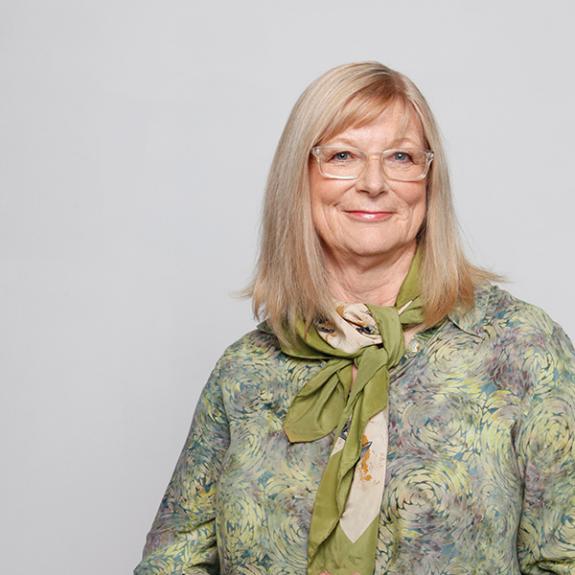Meet our brilliant minds: Professor Jane Halliday
 Exposures in pregnancy
Exposures in pregnancy
Jane Halliday was a young mother of two little children when she began her long-standing career at the Murdoch Children's more than 30 years ago.
She fondly recalls director and founder, David Danks, explaining why he’d given Jane her first research job: “You said, ‘I love being with my children, but I want to do something for myself’,” he told her, clearly impressed.
“I love that story,” says Jane, who exudes warmth and is renowned for her cohesive relationship with her team of researchers.
In the early days, Jane pulled together the first report on prenatal diagnosis in the state. In 2015, a summary of 38 years of these data was published in the British Journal of Obstetrics and Gynaecology.
The epidemiologist remembers the days when the Institute’s founding patron, Dame Elisabeth Murdoch, would pop in. “We used to just sit in the tea room with her and have a chat. It was a small place. We all knew her very well.”
Jane knew her especially well. Dame Elisabeth was a friend of her parents and a fan of Jane’s choral conductor husband, Michael Leighton Jones, attending many of his concerts.
Jane completed her PhD in 1994 and ran the Victorian Government’s Birth Defects Register until 2009, while also working part-time at the Institute. She has worked with all the directors and has never had the inclination to work anywhere else. “Everything I did here kept changing; the people and the environment. I really enjoyed what I was doing.”
Research can be serendipitous, she adds, with numerous grant proposals resulting in an often eclectic mix of studies, depending on what is funded. She considers the ongoing research she leads into the long-term effects of IVF on individuals and alcohol in pregnancy in this “hotch-potch” category, although all under the umbrella of genetics and epidemiology.
Her world-first IVF study of Victorians who were conceived using the procedure found they grew up to enjoy a similar quality of life and educational achievement compared to those conceived naturally.
She also leads topical research into the effects of alcohol drinking during pregnancy on children’s health and development to answer the long-standing question—what is a safe amount of alcohol to drink in pregnancy, if any?
Researchers have collected detailed information about drinking during pregnancy from nearly 1,600 women and followed up with children at one and two years of age to assess the impact of different amounts of alcohol on the unborn child.
There is so much conflicting evidence about the impact of drinking low amounts of alcohol in pregnancy that people don’t know what to believe, says Jane. Also, sporadic binge drinking—for example, before women know they are pregnant—is another area of research being explored.
“Our focus is on the low levels and the sporadic binge drinking early in pregnancy—they are the two groups that we are really interested in comparing to all other groups.
“It’s ok to say no alcohol is the safest—that’s right—but it’s not always practical. We are trying to put more information out there for people to use in whatever way they can.”
Jane hopes the research will shed light on how to deal with the 30 to 40 per cent of women who experience unplanned pregnancies when alcohol is often a factor.
“How do you get people thinking about alcohol, even though they are not thinking about pregnancy? That’s the biggest challenge.”
After more than three decades, Jane is ready to scale back her Murdoch Children's life. She will work part-time and focus on other interests, especially her grandchildren.
“I feel that I’ve been very fortunate to have a fantastic group of researchers around me. It is a really great place to work and there have been some wonderful opportunities for collaboration and friendships. It’s an exciting place to be.”
More information
View Professor Jane Halliday's researcher profile
Learn more about reproductive research at Murdoch Children's
